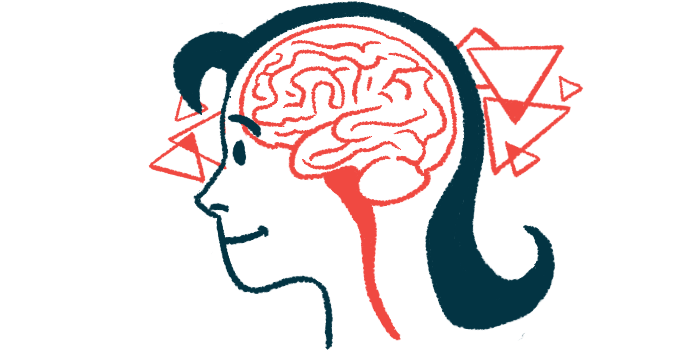Brain structure changes may explain Cushing’s cognitive issues
High cortisol levels can cause persistent physical changes, study finds
Written by |

People with Cushing’s disease frequently experience cognitive and psychiatric complications, often persisting after surgery to remove the disease-driving tumor, a review study noted. That could be because high cortisol levels during active phases of Cushing’s disease can cause physical changes in brain structure that persist after cortisol levels are back under control following surgery, the researchers said.
“While patients with [Cushing’s disease] regain some brain volume after achieving remission, critical regions of the brain for cognition and emotion do not fully recover, which may lead to the persistence of clinical symptoms,” the team wrote.
The review study, “Cognitive decline in Cushing’s syndrome: A systematic review,” was published in the Journal of Neuroendocrinology.
Cushing’s disease is a hormonal disorder in which a tumor in the brain’s pituitary gland produces and releases large amounts of a signaling molecule called adrenocorticotropic hormone (ACTH). High levels of ACTH trigger the adrenal glands, sitting atop the kidneys, to produce excessive amounts of the stress hormone cortisol. Elevated cortisol levels ultimately drive the disease’s symptoms.
Cushing’s disease is a specific form of Cushing’s syndrome, a term that broadly refers to any condition driven by high cortisol levels, irrespective of the underlying cause.
Cognitive issues common
Cortisol is often called the stress hormone because it is normally produced when the body is under stress, helping to trigger the fight-or-flight response. In Cushing’s, long-term exposure to high cortisol levels can cause changes in the brain that lead to cognitive and emotional problems.
A team led by scientists in the U.S. conducted a review of scientific literature to assess what is currently known about these issues in Cushing’s patients.
The review covered findings from 40 studies with data on more than 2,600 people with Cushing’s syndrome. About half of them had Cushing’s disease.
Researchers compared cognitive and psychiatric evaluations from Cushing’s patients with data from healthy individuals and from people with a non-functioning pituitary adenoma (NFPA), or a pituitary tumor that does not produce ACTH and cause cortisol levels to rise.
Findings showed that cognitive issues, such as difficulties with memory, are common in Cushing’s disease. Data suggested that, as a rule, cognitive impairment is more severe in patients who have higher ACTH and/or cortisol levels. Psychiatric complaints, such as depression, were also frequently reported in Cushing’s patients.
Brain changes linked to cortisol
The usual first-line treatment for Cushing’s disease is brain surgery to remove the disease-causing tumor. Researchers noted that cognitive and psychiatric problems tended to persist even after the tumor was surgically removed.
In people with NFPA, psychiatric issues like depression tended to get better after surgery to remove the tumor. The fact that this was seen in NFPA but not in Cushing’s disease suggests that emotional problems in Cushing’s are likely due to the effects of cortisol on the brain, rather than just the stress of having a tumor.
Further highlighting the impact of cortisol on brain biology, data from MRI studies showed that Cushing’s patients experience structural changes in the brain, with less gray matter and larger ventricles. Gray matter is the part of brain tissue that houses the bodies of nerve cells, while ventricles are the fluid-filled cavities in the brain.
Many of these changes reversed after surgery to remove the tumor. But some parts of the brain, including regions like the frontal and temporal lobes that are important for controlling thoughts and feelings, showed persistent abnormalities.
The data suggest that prolonged exposure to high cortisol levels in Cushing’s disease “could have irreversible effects on parts of the brain that are important for cognitive and emotional function,” the researchers wrote. They called for further research to more directly assess the relationship between brain structure changes and mental health in Cushing’s patients before and after surgery.







